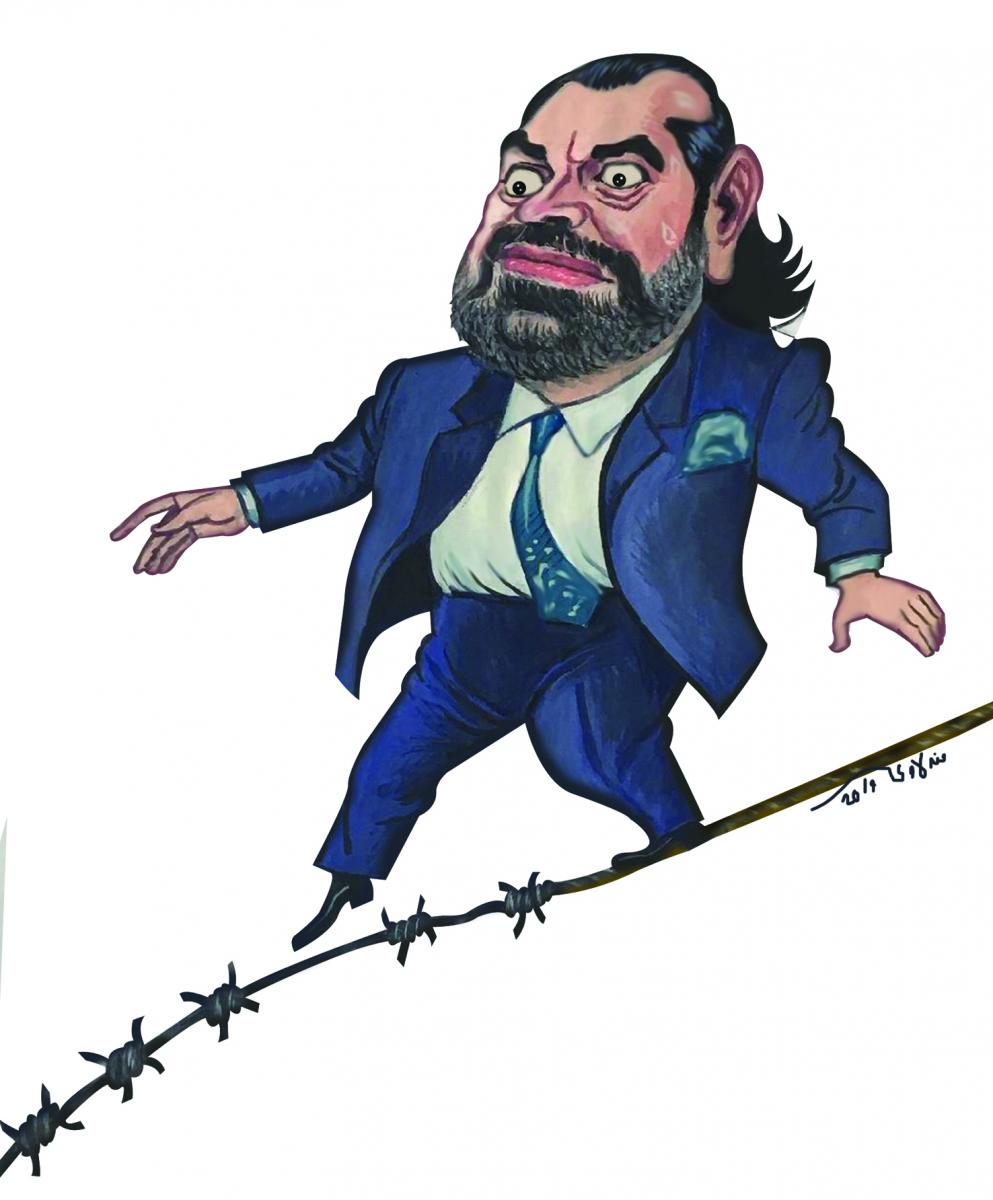
Saad Hariri was born in Riyadh, Saudi Arabia on 18 April 1970, and is the son of former Lebanese Prime Minister Rafic Hariri and his first wife Nida Bustani, an Iraqi. He is multilingual and holds dual Lebanese-Saudi citizenship, and his wife, Lara, the mother of their three children, is from a prominent Syrian family. He graduated in 1992 from the McDonough School of Business at Georgetown University with a major in Business Administration.
Hariri returned to Saudi Arabia where he managed part of his father's business in Riyadh until his assassination in 2005 when a parked van packed with about 1,800kg of explosives was blown up as his motorcade passed close to the Parisian-designed St Georges hotel in central Beirut. Twenty-two other people were also killed. Rafic’s death thrust Hariri onto the political stage. Critics at the time chided him for his lack of political experience, but he became one of the most important figures in Lebanese politics.
Hariri took over as the leader of his father’s political party, the mainly Sunni Future Movement, in 2005. He is seen as "the strongest figurehead" of the March 14 movement, named to commemorate the day in 2005 when massive anti-Syrian protests and Western support which opposed Syrian influence in Lebanon’s affairs and led to the withdrawal of Syrian troops from Lebanon in 2005 after a 29-year presence.
In 2009, he led the March 14 coalition to victory and was named Prime Minister. Shortly after, he made a bridge-building visit to Syria, evidently intended as an act of statesmanship placing national interest above personal considerations. However, any notion of conciliation soon evaporated. Eighteen months after leaving office in 2011 after ministers aligned with Hezbollah resigned due to political tensions arising from investigations into the assassination of his father for which Hezbollah operatives had been accused of orchestrating, he was named in an arrest warrant issued by Bashar Al Assad’s authorities accusing him and others of arming and financing opposition groups. This move prompted Hariri to describe Assad as a "monster". He had already moved to Paris citing safety concerns.
After three years living overseas, he returned to Lebanon unannounced on 8 August 2014 and he was designated Prime Minister on 3 November 2016 as part of a deal that ended 29 months of political stalemate. The deal included Hariri’s support for the election of Michel Aoun as president; Aoun was a member of the March 8 bloc, which consisted of Hezbollah and its allies.
The deal and the political stability of Lebanon were threatened in November 2017 when Hariri unexpectedly resigned as prime minister while on a visit to Saudi Arabia. Hezbollah, which he called “Iran’s arm” was the focus of his resignation speech. Lebanese officials found the circumstances behind the resignation to be suspicious and President Aoun refused to accept his resignation and demanded that Hariri return to Lebanon to discuss the matter. Hariri was allowed to return to Lebanon several weeks later, where he immediately suspended his resignation.
In May 2018 Lebanon held its first legislative election since 2009. Hariri’s party lost 12 seats, partly due to supporters’ disappointment in the concessions he had made in order to break the political stalemate of 2014–16, and his March 14 bloc lost its majority in parliament. The March 8 bloc received a majority of seats, and Hezbollah was in a position to shape the government and its affairs in unprecedented ways.
The new cabinet struggled to juggle national unity and stability with the severe financial crisis and national security. With the country burdened by one of the worst debt balances in the world, confidence in the economy had disappeared, investors faced a poor outlook, and consumers were forced to tighten their belts as the government undertook austerity measures. Lebanon is heavily dependant on foreign aid and money sent home by expatriates.
In October, after the government announced a new tax on Whatsapp as its latest austerity measure, Lebanese across the country took to the streets in the country’s largest protests since March 2005, demanding an overhaul of the ruling class and an end to rampant corruption. The tax was quickly withdrawn, and Hariri’s cabinet rushed through an emergency package meant to quell the protesters’ frustrations, but the demonstrations continued, and the protests called broadly on the country’s top officials to resign. On October 29, 2019, amid the ongoing protests, Hariri and his government resigned in a move that sparked further uncertainty in a country paralyzed by political dysfunction and nationwide protests.









